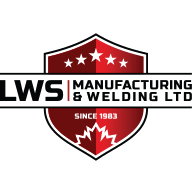What is Food-Grade Welding?
Due to strict food safety and hygiene standards, food-grade welding has become integral in the installation of all systems involved in food production and processing. LWS Manufacturing & Welding provides expertise in mobile welding services that cater to the strict requirements of food-grade welding. That is why we have prepared a detailed explanation to answer the complex question: what is food-grade welding?
Food-Grade Welding
Food-grade welding is a specialized practice integral to the food and beverage industry, ensuring that the processing equipment and containers used in production meet the highest standards of hygiene and safety.
The Importance of Material Selection
In food-grade welding, the choice of material is critical. Stainless steel is predominantly used due to its resistance to corrosion, ease of cleaning, and overall durability. This material is especially crucial in creating surfaces that come into direct contact with food products.
The specific properties of welding stainless steel, such as its non-reactive nature, ensure that there is no contamination of the food being processed, thereby maintaining both the quality and safety of the final product.
Adherence to Strict Standards
The practice of food-grade welding is governed by stringent sanitary standards, such as those set forth by the Food Safety Modernization Act (FSMA). These standards dictate aspects like the minimum chromium content in stainless steel and specific surface roughness requirements.
Welders and fabricators must also be vigilant in preventing the formation of crevices or irregularities on the surfaces, as these can become breeding grounds for bacteria, compromising the sanitary integrity of the equipment.
Advanced Welding Techniques for Optimal Hygiene
Advanced welding techniques are employed to achieve the precise requirements of food-grade applications. Techniques such as TIG (tungsten inert gas) welding are commonly used for their ability to produce clean, strong, and precise welds with minimal contamination risk. Additionally, the welds must be polished to eliminate any sharp edges or burrs, ensuring the equipment is both safe to handle and free from potential contamination risks.
The Role of Automated Welding Systems
The use of automated welding systems, like orbital welding, is increasingly prevalent in achieving the high standards required in food-grade welding. These systems allow for greater control and precision, minimizing human error and ensuring consistent quality across all welds. Automation in welding not only enhances efficiency but also plays a critical role in maintaining the integrity of the food processing systems.
If you have a food-grade welding project and need professional welding services adhering to the strictest standards, LWS Manufacturing & Welding is your partner of choice. Contact us via our website form or by sending an email to lws@lwsmetalfab.com.




